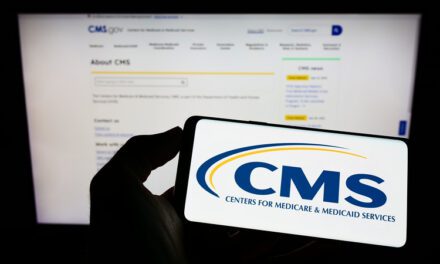Recent comments submitted by the American Medical Rehabilitation Providers Association (AMRPA) to the Centers for Medicare & Medicaid Services (CMS) voice concern regarding changes in its proposed FY 2015 rule for the inpatient rehabilitation facility prospective payment system (IRF PPS). A news release issued by AMRPA indicates that several proposed changes could potentially limit Medicare beneficiaries’ access to key rehabilitation services provided in an inpatient rehabilitation hospital and unit.
Bruce M. Gans, MD, chairman of AMRPA, explains that some of CMS’ proposed changes would provide administrative burdens that could limit a rehabilitation hospital’s ability to provide quality of care.
“Rather than encouraging individuals to receive treatment in the most appropriate setting, the proposed rule could have the unintended consequence of decreasing access to rehabilitation hospitals and units,” Gans says.
In the release, AMRPA notes that the 60% Rule requires that 60% of an inpatient rehabilitation hospital’s annual admissions fall within one or more of 13 qualifying conditions. The Rule is designed to assist in distinguishing rehabilitation hospitals from acute care hospitals for Medicare payment purposes. The proposed changes, the release says, would further prohibit certain rehabilitation diagnoses from being counted toward a rehabilitation hospital’s compliance for meeting the 60% Rule.
As a result, AMRPA recommends that CMS not make its proposed changes to the various codes and diagnoses that currently qualify an admission as counting toward the 60% Rule.
Gans acknowledges that AMRPA applauds CMS’ interest in learning more about how group therapy can fit into a rehabilitation hospital’s services. However, he adds, “We’re concerned that CMS’ approach does not account for how the various types of therapy relate to patient outcomes, and is focused solely on the cost of the various types of therapy. We are also concerned that the proposed reporting requirements pose an inordinate cost burden for rehabilitation hospitals and units.”
AMRPA further recommends in the release that CMS engage in a variety of strategies to combat this potential impact. This includes conducting a study that includes all inpatient rehabilitation hospitals and units; covering all types of therapy (psychology, social work, recreation, etc) in addition to physical, occupational, and speech language pathology services; and capturing patient outcomes measures, rather than the proposed reporting requirement. In this way, the release reports, CMS could assess the relationship between style and scope of treatments and patient outcomes.
Additionally, the release notes that AMRPA recommends CMS adopt its proposed definitions for individual, group, and co-treatment therapies to better reflect current practice and patient experience and that the final rule specify that therapy minutes provided in group settings be apportioned according to the therapist among the patients for data-collection purposes and counted toward the 3-hour rule.
Lastly, in the release AMRPA recommends CMS not set a maximum threshold of group therapy relative to other therapies until research is conducted regarding the impact on outcomes of different types of therapy, disciplines, and diagnoses.
View AMRPA’s full letter to CMS here
[Source: AMRPA]





